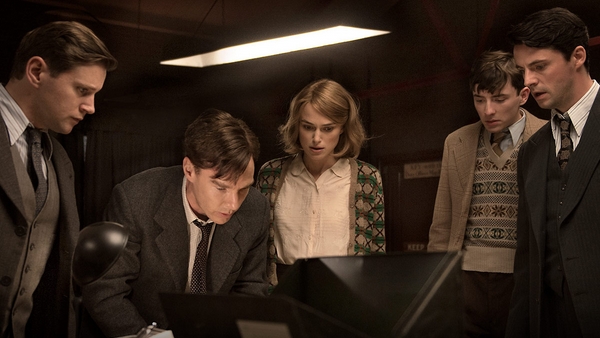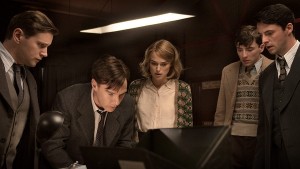 When it comes to year-end Oscar bait, err, high quality entertainment, you can hardly do better than a film from The Weinstein Company. Granted that’s a playful way of saying they sweep up award season nods this time of year, but The Imitation Game, is a solid and alluring story, and as fine a picture as you’d expect to see. However, its theatrical release has been, like Kobe beef, bred for just one purpose. Consumption by a very select audience – in this case, academy voters.
When it comes to year-end Oscar bait, err, high quality entertainment, you can hardly do better than a film from The Weinstein Company. Granted that’s a playful way of saying they sweep up award season nods this time of year, but The Imitation Game, is a solid and alluring story, and as fine a picture as you’d expect to see. However, its theatrical release has been, like Kobe beef, bred for just one purpose. Consumption by a very select audience – in this case, academy voters.
Now there is nothing at all wrong with the picture. In fact, it would be harder to knock it than to find unique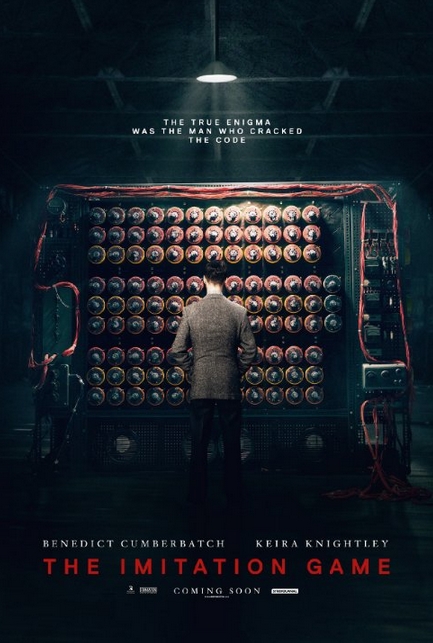 ways of praising it, but this superb effort from Norwegian director Morten Tyldum still has the earmarks of being a safe film you can recommend to your parents around the holidays. It’s fantastic, but it also feels very familiar, nearly formulaic. Now what outweighs this feeling however is the gravity to the depicted events, and how the life of one man both saved and changed the world – both in the days, years and decades that followed. You want to talk about unappreciated legacy?
ways of praising it, but this superb effort from Norwegian director Morten Tyldum still has the earmarks of being a safe film you can recommend to your parents around the holidays. It’s fantastic, but it also feels very familiar, nearly formulaic. Now what outweighs this feeling however is the gravity to the depicted events, and how the life of one man both saved and changed the world – both in the days, years and decades that followed. You want to talk about unappreciated legacy?
It’s very much in line with other recent Weinstein films, most notably The King’s Speech which blends more humor than you’d expect to find in a serious period piece. What Tyldum does is take a seemingly laborious concept, like pre-computer code breaking, and make it into a suspenseful thriller. There’s not a lot of tension you can derive from 2 years of math computations trying to break a code. That’s where the flashbacks come in to pepper the story and get an idea of who Alan Turing is rather than see Cumberbatch snidely insult his team for their inability to see things in his quirky light (yes, Cumberbatch does a darling British version of Sheldon Cooper). But the codes are only half of the story. It’s Turing’s backstory and character himself that make the film compelling.
Sporting a superb cast, The Imitation Game really is one of the must-see films of the holiday season. Benedict Cumberbatch, Kiera Knightley, Matthew Goode (why isn’t he in more films?) even the underused Allen Leech, Charles Dance and Mark Stong help make this an impressive ensemble. Their wealth of acting power and experience alone makes this interesting even if the portrayals come across restrained. The film is essentially a blindfolded chess match but it, at times, still aspires to be a top notch nail-biter. Also, there’s always something captivating and somewhat endearing about a character so brilliant they are socially inept. Cumberbatch has an air about him and he’s quite fit to play Turning.
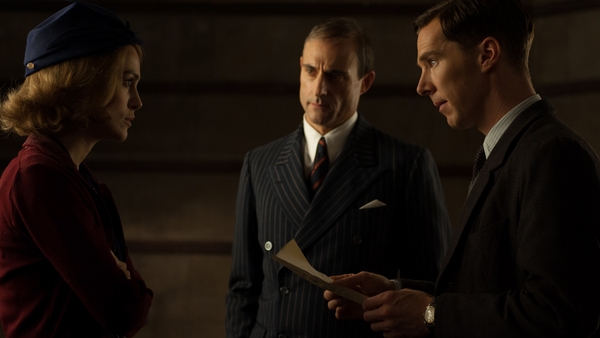
Similar to The King’s Speech, Alexandre Desplat is behind the music which weaves all these elements together. The score is, without doubt, one of the year’s finest and perhaps his best recent work. Virtuosic, imaginative, and prolific, Desplat gives the film a truly complex and pensive sound. A modern, yet classically minded musician, his compositions rival the whimsy and energy of John Williams but Desplat works with his own, very distinctive palate.
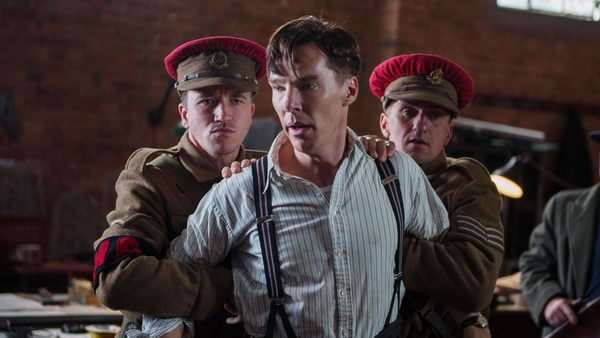
Now there are unavoidable parallels and comparisons to A Brilliant Mind, but the key difference here is that John Nash’s awkwardness and quirks were a product of his mind. Alan Turing on the other hand, and his team, actually saved millions of lives. But more shocking than the story is that these details have been kept secret for the last half century. Further, it’s jarring to understand that the now archaic technology (and the war-fueled tension to create it) used in the film laid the groundwork for the equally complex and baffling abundant technology we have today.
G-S-T RULING:
The Imitation Game is a quintessential example of a studio, director and cast firing on all cylinders. Again it’s safe, and there’s not a chance of redlining, or taking chances, but The Imitation Game doesn’t need to be risky. It just needs to be honest. Honest about the war, the stakes and the people behind the scenes, especially Alan, who was unfairly mistreated by his government because of his sexual preference. He paid to save lives, and he paid to keep working to do so. Sometimes the truth is stranger than fiction, and in this case, that’s doubly true.

